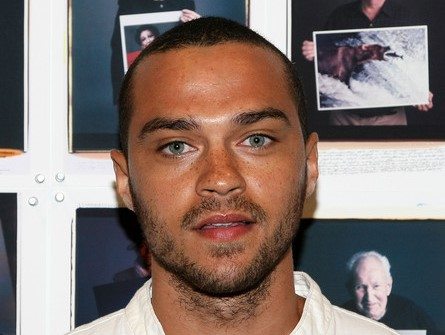Students at the University of Utah and students from local high schools and other universities across the state packed into the A. Ray Olpin Union ballroom on Friday, Feb. 2, to hear Jesse Williams discuss topics of race, intersectionality and privilege.
Williams was the keynote speaker for the Conference On Diverse Excellence (CODE) organized by the Associated Students of the University of Utah. Announcers said the gathering was “probably the biggest CODE conference yet.”
Despite the high-pitched squeals that echoed through the halls when Williams appeared on stage, the talk focused not on his career as an actor, but rather on the racial justice principles that he supports. Williams is perhaps best known for his role as Jackson Avery on the ABC series “Grey’s Anatomy,” but he has been an activist for much of his life.
Williams is of mixed heritage. He spoke of the way his parents advanced his awareness of current events and the socio-political climate from a young age. He described a move from Chicago to Massachusetts as one where he was no longer referred to as the white boy, but instead was called the n-word. It was a defining shift in how the communities perceived him after moving from a racially diverse neighborhood to a predominantly white suburb.
“Why is the bar a little bit higher in this community?” Williams recalled contemplating and commented on the how this instilled in him awareness for the people who he was “leaving behind.”
This appreciation perhaps led to Williams’ role as a board member of the Advancement Project, a civil rights think tank and advocacy group.
He also discussed his involvement with the Black Lives Matter chapter in Ferguson, Missouri, after widespread protests swept the streets of the city following the death of 18-year-old Michael Brown. Brown was a black teenager who was shot by a white police officer, Darren Wilson, who was acquitted on Nov. 24, 2014, on grounds of self-defense.
Williams accused the press of disguising the truth during the protests in Ferguson and said what was happening on the ground was starkly different from the way the media portrayed it. He described protesters as “rightfully angry” at an oppressive system built by institutions such as for-profit prisons and propagated by means of outstanding warrants for minor infractions that low-class citizens cannot afford to pay.
A diverse group of students from institutions beyond the U was present in the audience. Melodie Jackson and Jenna Rakuita, two students from Brigham Young University (BYU), said they were excited to hear Williams speak because they feel he is representative of this generation’s views on civil rights issues and racial justice.
“We would like to see more young faces — faces that are more in the thick of the movement,” Rakuita said.
As the vice president of the Women of Color Club at BYU, Rakuita expressed frustration at the amount of red, “or I guess blue,” tape that various student unions representing marginalized groups face when requesting the private school administration’s approval for event speakers.
“For example, we can’t talk too much about police brutality during the events that we organize,” Rakuita clarified.
@TheChrony


